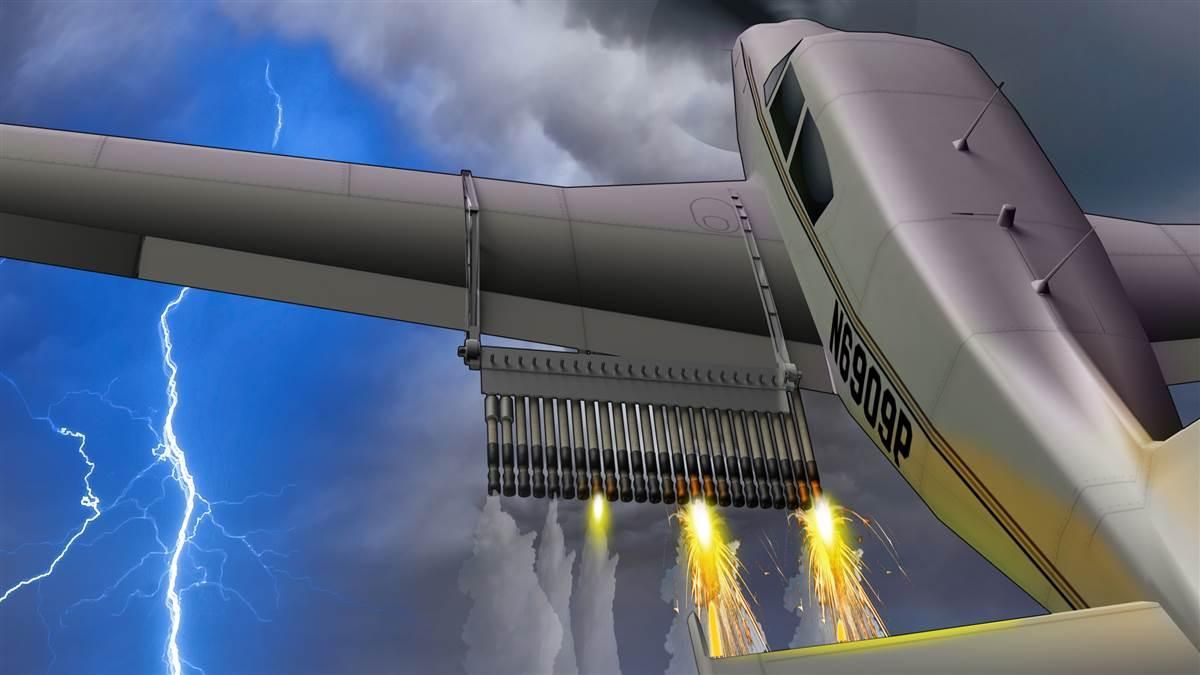Manipulating the Heavens: The Unsettling Legacy of Operation Popeye

In an age where clandestine operations sought to tip the balance of power during the Vietnam War, one secret mission – Operation Popeye – attempted to control something seemingly divine: the weather. But in the face of recent natural disasters, we're left to question: what are the ramifications of humans playing god, and what assurance do we have that such interventions aren't still occurring?
Operation Popeye: The Premise
To cripple North Vietnam's supply routes, especially the Ho Chi Minh Trail, the U.S. sought to extend the monsoon season. Between 1967 to 1972, aircrafts saturated clouds with silver iodide to induce rain, intending to mire the North Vietnamese in their tracks. The U.S. military wanted nature to be its covert ally. But in trying to harness the heavens, they sparked a maelstrom of controversy.
The Unveiling and Global Outcry
When the Washington Post exposed Operation Popeye in 1971, the backlash was swift. While the U.S. military saw it as a strategic move, many viewed it as a violation – an unholy tampering with the natural world. More importantly, if humans could deliberately inundate regions, what unforeseen repercussions might arise?
Today's Deluge: Acts of God or Humans?
Recent catastrophic events, from Hong Kong's severe flooding to unprecedented hurricanes, have led to whispered concerns: are these purely natural disasters, or are they influenced by human interventions similar to Operation Popeye?
Given the historical precedent, suspicion is not unwarranted. As the global community grapples with increasingly erratic weather patterns, exacerbated by climate change, the knowledge that a government once successfully manipulated weather patterns for warfare casts a long, unsettling shadow.
The Ethical Quandary
Operation Popeye was not just a military operation; it was an ethical breach. It revealed the audacity of humans in their quest for dominance, even at the risk of planetary balance. As we bear witness to the earth's retaliations – be it in the form of floods, hurricanes, or droughts – the ghosts of past interventions loom large.
For many, the fear is twofold: the natural repercussions of climate change and the uncertainty surrounding clandestine human interventions. In a world seeking to combat climate change, there's an urgency to ensure that no entity repeats the overreaches of Operation Popeye.
In conclusion, while Operation Popeye remains a historical blight, its real danger is the questions it raises in today's context. It's a stark reminder that some lines, especially those governing the sanctity of nature, should never be crossed.
Operation Popeye: The Scope, Success, and Ethical Implications of Weather Warfare
Digging Deeper into Operation Popeye
The Vietnam War era's Operation Popeye, while a footnote in some history books, is a crucial example of how far humanity can go in the pursuit of power. Recent investigations have brought to light the scope, frequency, and perceived successes of this covert weather manipulation campaign.
Frequency and Duration of Weather Manipulation
Records reveal that Operation Popeye was more extensive than previously assumed. Over the course of five years, from 1967 to 1972, aircraft dispatched by the U.S. military reportedly conducted 2,602 cloud-seeding sorties. This resulted in an estimated 47,409 units of cloud seeding materials being dispensed over the skies of the Ho Chi Minh Trail and other key logistical points of the North Vietnamese supply route.
Perceived Successes
While there were over two thousand sorties, not all were successful in inducing rain. Nevertheless, internal evaluations by the U.S. military claimed that the operation extended the monsoon season by 30 to 45 days. However, the exact quantification of its impact remains debatable.
More than just affecting logistics, Operation Popeye also had a psychological element. It demoralized North Vietnamese troops, who found themselves bogged down in muddy terrains for extended periods, impacting both their movement and morale.
Efficacy vs. Ethical Ramifications
The tactical advantages garnered through Operation Popeye cannot be denied. However, manipulating such a vast and intricate system as the weather carries implications far beyond the immediate area of effect. The region's ecology could have been disrupted, affecting agriculture, local wildlife, and long-term weather patterns. These ecological interferences hold long-term ramifications, the full scale of which we might never grasp.
Furthermore, while Operation Popeye aimed at disrupting enemy operations, civilians bore the brunt of these changes. Increased rainfall led to flooding, crop destruction, and the spread of water-borne diseases, exacerbating the hardships of an already beleaguered population.
Conclusion: Revisiting the Ethics of War
While the exact impact of Operation Popeye may never be fully understood, it serves as a stark reminder of warfare's ever-evolving nature. As technological advancements provide new avenues to gain an upper hand in conflicts, the ethical lines defining acceptable actions blur.
In an era where the implications of climate change are becoming increasingly pronounced, understanding and acknowledging past attempts at weather manipulation is crucial. Not just for historical accuracy, but to ensure that we proceed with caution, understanding the broad ramifications of such actions on both the environment and human populations.



Comments ()